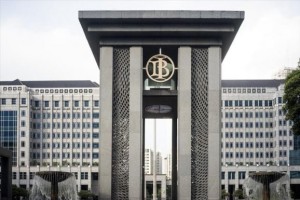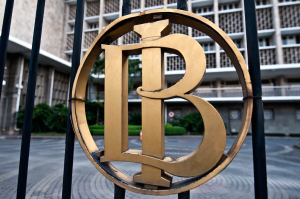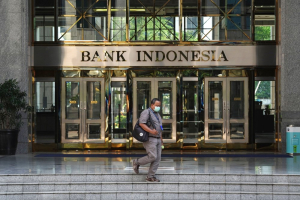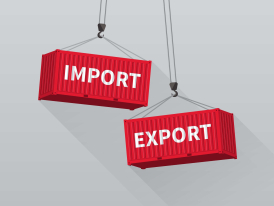U.S. tariff policy deemed counterproductive, pressures rupiah, threatens exports
The increase in import tariffs by United States President Donald J. Trump against a number of trading partner countries is considered to have put great pressure on Indonesia's economic stability, having a direct impact on the rupiah exchange rate and national export performance, says a researcher.
Macroeconomics and financial market researcher at the University of Indonesia's Institute for Economic and Social Research (LPEM UI), Teuku Riefky, said that the US. tariff policy is counterproductive to Indonesia's economic stability.
"We can see from a global perspective that this policy creates uncertainty and very passive economic pressure,” Riefky spoke to Indonesia Business Post on Tuesday, April 8, 2025.
According to him, the United States is one of Indonesia's main export destinations with a significant trade surplus. However, with the imposition of new tariffs on Indonesian export products, national export performance is certain to be depressed.
Not only does it have an impact on trade, U.S. protectionist policies also encourage a shift in global investment towards safe haven assets such as the U.S.dollar and gold. This triggered a capital outflow from developing countries, including Indonesia.
"Investors shifted their investments to safe havens such as the USdollar and gold. As a result, there was a sell-off in developing markets and the rupiah was under pressure," he said.
He added that this pressure caused the rupiah exchange rate to weaken and potentially hover in the range of Rp16,800-17,200 per U.S. dollar throughout the second quarter of this year.
Riefky assessed that the concrete steps that the government could take were to strengthen economic diplomacy.
"Bilateral negotiations and trade diplomacy with other bloc countries, such as BRICS, are important so that we are not fully impacted by the U.S. tariff policy," he said.
However, Riefky also reminded that the pressure on the rupiah did not entirely come from external sources.
"Domestic factors also play a role, such as political instability and the weakening purchasing power of the community which caused investors to choose to exit the Indonesian market," he cited.
In terms of monetary policy, Riefky sees no need for an interest rate increase in the near future. "However, Bank Indonesia needs to continue to intervene, such as through Non-Deliverable Forward (NDF) and Domestic Non-Deliverable Forward (DNDF), which have so far been quite effective in stabilizing the exchange rate," he said.
Furthermore, Riefky reminded that the depreciation of the rupiah could trigger imported inflation and put pressure on the state budget, especially on energy subsidy spending.
"A weakening exchange rate will certainly have an impact on the calculation of fuel subsidies which refer to certain exchange rate assumptions," he said.
Sectors most vulnerable to this condition are industries that depend on imported raw materials, although the impact is comprehensive.
"The greatest risk remains in sectors that are highly dependent on imports," Riefky concluded.
Already have an account? Sign In
-
Start reading
Freemium
-
Monthly Subscription
30% OFF$26.03
$37.19/MonthCancel anytime
This offer is open to all new subscribers!
Subscribe now -
Yearly Subscription
33% OFF$228.13
$340.5/YearCancel anytime
This offer is open to all new subscribers!
Subscribe now






